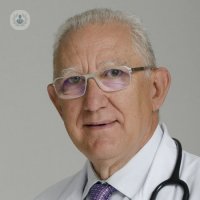How to know if your child has ADHD
Written by:Attention Deficit Hyperactivity Disorder (ADHD) is a behavioral disorder that appears in childhood and usually begins to be diagnosed around 7 years of age, although in some cases this diagnosis can be made in a more precocious way. In principle, it manifests as an increase in physical activity, with impulsive behaviors and a certain difficulty to maintain attention in a certain activity during a period of time. In addition there is an emotional instability. This type of disorder is more common in boys than girls and it is estimated that it affects between 5 and 10% of the child and youth population.
The most frequent symptoms are manifested when the child experiences an intense difficulty to pay attention , does not listen and interrupts other children and adults, is easily distracted when doing homework or playing, is very forgetful, is constantly moving from one place to another or is unable to sit still, talks too much, acts and speaks impulsively ... among others. If the child suffers from several of these symptoms, he may suffer ADHD. Although almost all people sometimes show some of these behaviors in ADHD, they persist for more than 6 months causing problems at school, home, etc.
A complete evaluation by a trained professional - pediatrician, neurologist or psychologist - is the only way to know for sure if a child has ADHD. And regarding treatment it may include drugs - such as methylphenidate - behavioral therapy or a combination of both to control the symptoms. The structure of the home and the school are also important in the evolution of the treatment. In addition, psychological training for parents can help control symptoms.



